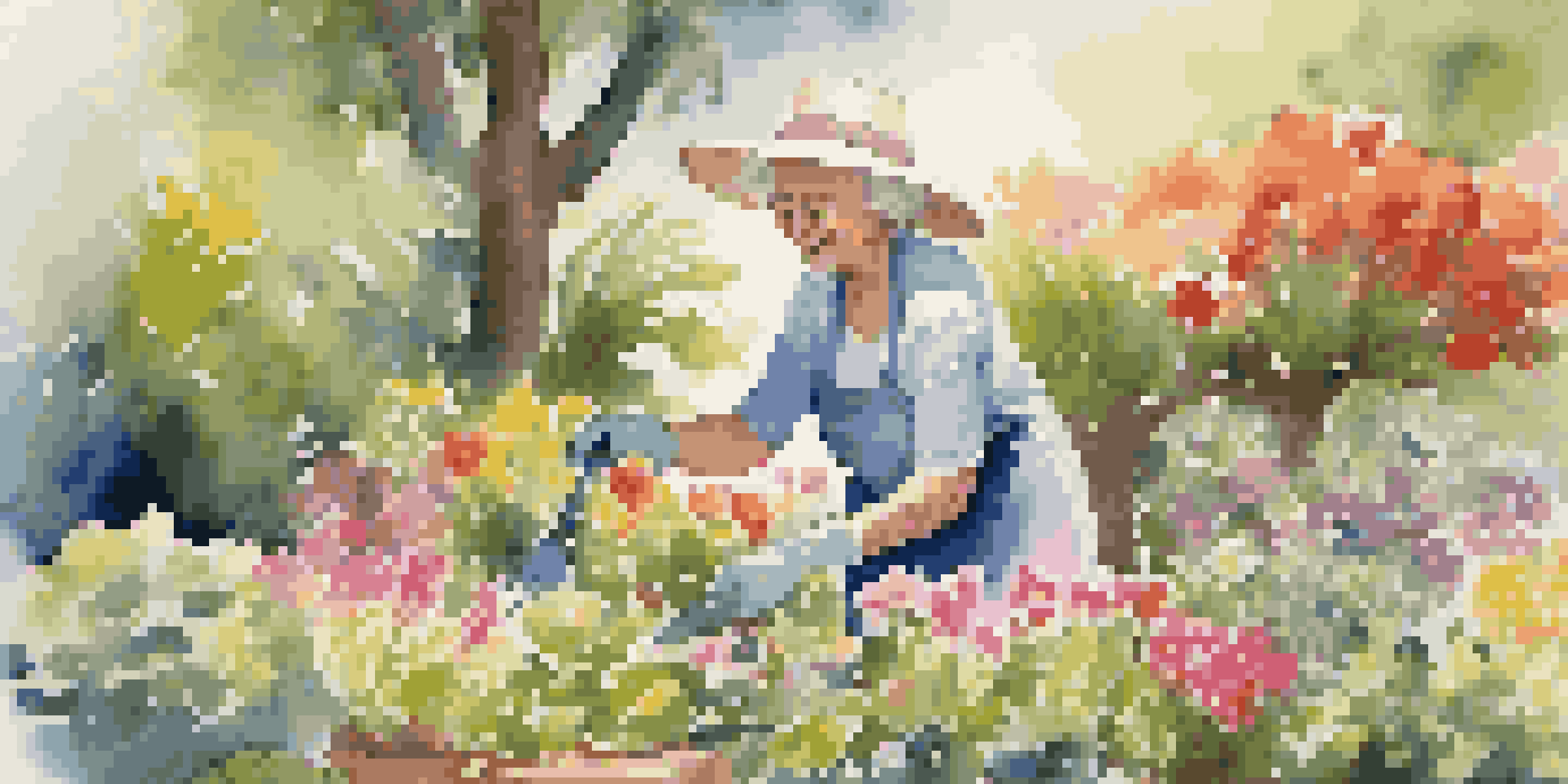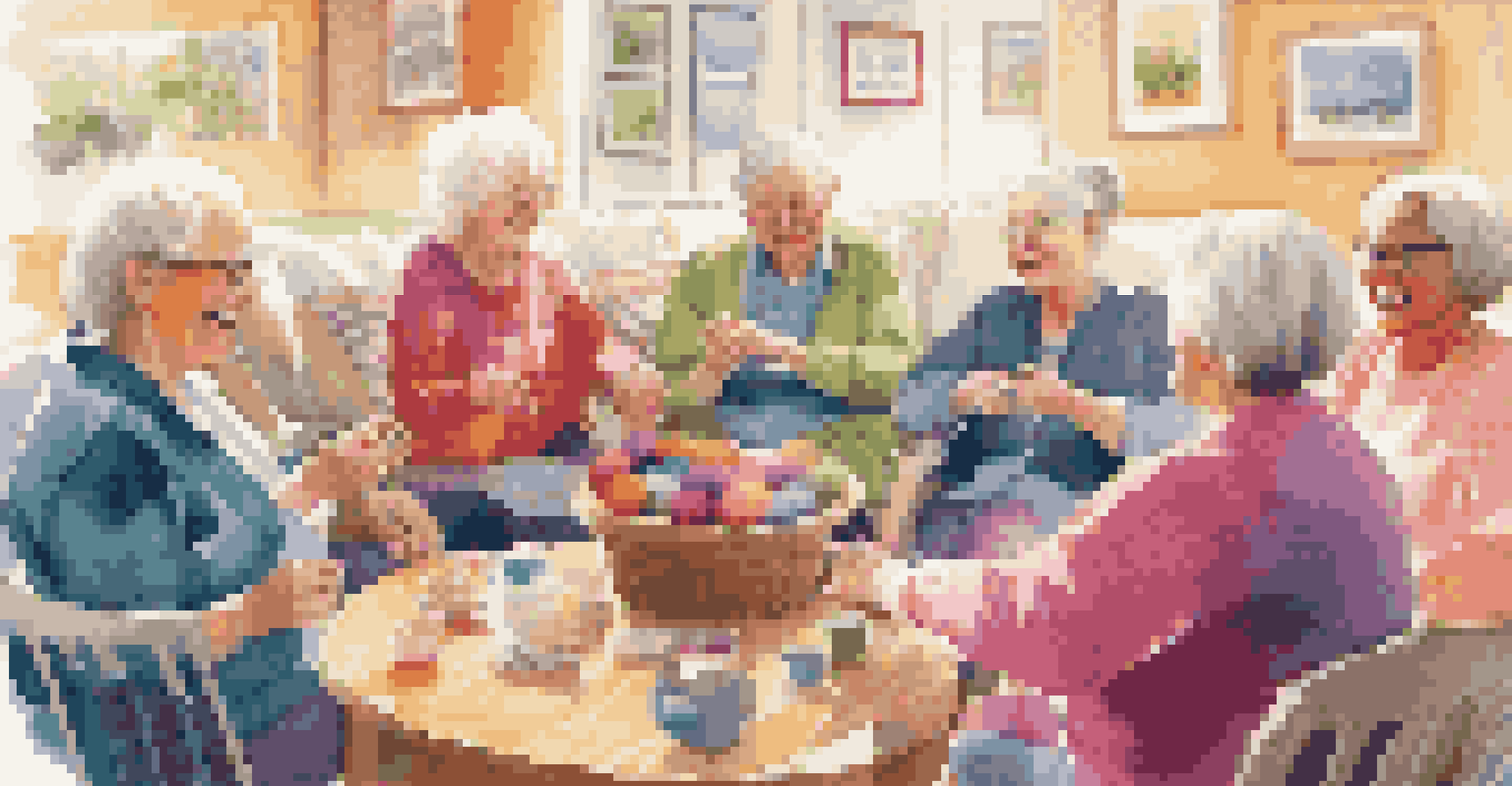Engaging in Lifelong Hobbies for Better Aging and Well-Being

The Importance of Lifelong Hobbies for Aging Gracefully
Lifelong hobbies are more than just enjoyable pastimes; they are essential for graceful aging. Engaging in activities you love keeps your mind sharp and your spirit high. Studies show that older adults who maintain hobbies tend to experience less cognitive decline. This highlights the crucial role of hobbies in fostering a fulfilling life as we age.
Hobbies are a great way to fill your time. But they are also a great way to fill your soul.
Think of hobbies as the spice in the recipe of life; they add flavor and excitement to our everyday routine. Whether it’s painting, gardening, or playing an instrument, these activities provide a sense of purpose. They also allow for self-expression, which is vital in preserving one’s identity as we grow older.
Moreover, hobbies can create social connections, which are vital for emotional well-being. Joining a local knitting group or a book club can provide much-needed companionship. As we age, these social interactions can combat feelings of loneliness and isolation.
Mental Health Benefits of Engaging in Hobbies
Engaging in hobbies can significantly boost mental health, especially in older adults. Activities that require focus and creativity can distract from stress and anxiety, promoting relaxation. For instance, gardening not only requires physical effort but also encourages mindfulness as one connects with nature.

Moreover, hobbies can provide a sense of accomplishment, which is important for self-esteem. Completing a painting or finishing a novel can give a feeling of satisfaction that enhances mental well-being. This sense of achievement can be particularly uplifting during challenging times.
Additionally, hobbies can serve as a form of therapy. Many older adults find solace in activities such as writing or crafting, which can act as emotional outlets. When expressing feelings through creative means, individuals often experience relief and improved mood.
Physical Benefits of Staying Active with Hobbies
Many hobbies require physical engagement, which is crucial for maintaining physical health as we age. Activities like dancing, hiking, or even gardening keep the body active, reducing the risk of chronic diseases. Regular movement not only strengthens the body but also improves balance and flexibility.
The only way to do great work is to love what you do.
Consider the joy of dancing; it’s a fun way to get your heart rate up while socializing. The rhythm and movement can enhance coordination and cardiovascular health, proving that fitness doesn’t have to feel like a chore. This makes hobbies a delightful way to incorporate exercise into daily life.
Furthermore, hobbies can also promote better sleep patterns. Physical activity can lead to improved sleep quality, which is vital for overall health. As we age, good sleep becomes increasingly important for cognitive function and emotional balance.
Social Connections through Shared Interests
Hobbies often provide a platform for social interaction, which is essential for emotional well-being in older adults. Joining clubs or classes linked to shared interests can forge new friendships. These connections can combat feelings of loneliness, creating a support network that enhances quality of life.
For instance, participating in a local choir or sports team can foster a sense of belonging. Shared experiences create bonds that can lead to lasting friendships. Engaging in these social hobbies can be particularly beneficial in a world where isolation is a growing concern.
Moreover, social hobbies can also encourage collaboration and teamwork. Working together on projects or participating in group activities fosters communication skills and builds strong relationships. This social engagement is vital for emotional health as we navigate the aging process.
Nurturing Creativity through Hobbies
Hobbies are a fantastic way to nurture creativity, an essential aspect of personal development. Creative pursuits like painting, writing, or crafting allow individuals to express themselves freely. This creative outlet can lead to greater satisfaction and fulfillment in life.
Consider how creating art can be both relaxing and invigorating. It allows for exploration and experimentation, which can be incredibly rewarding. Even if you’ve never considered yourself an artist, trying new creative hobbies can lead to unexpected joys.
Moreover, engaging in creative activities can stimulate the brain, promoting cognitive health. The act of learning new skills or techniques keeps the mind active and agile. This mental stimulation can play a significant role in reducing the risk of cognitive decline.
Setting Goals and Achieving Milestones
Engaging in hobbies allows individuals to set goals and achieve milestones, which is crucial for personal growth. Whether it’s completing a challenging puzzle or finishing a knitting project, these accomplishments can boost confidence. Setting and achieving goals, no matter how small, contributes to a sense of purpose and motivation.
For instance, training for a local 5K can provide a clear objective and a reason to stay active. As you work towards this goal, you not only improve your physical health but also experience a sense of community and camaraderie with fellow participants. The journey itself can be just as rewarding as crossing the finish line.
Additionally, celebrating these milestones can enhance your overall well-being. Sharing accomplishments with friends or family reinforces connections and validates your efforts. This mutual support can foster a positive environment, encouraging continued engagement in hobbies.
Transforming Challenges into Opportunities through Hobbies
As we age, we often face various challenges, but hobbies can transform these into opportunities for growth. Engaging in activities can provide a constructive outlet for dealing with life’s difficulties. For example, writing about personal experiences can be cathartic, allowing for reflection and healing.
Moreover, hobbies can help develop resilience. Overcoming obstacles in pursuits like learning a musical instrument or mastering a new recipe can teach valuable life lessons. These experiences can foster a growth mindset, encouraging individuals to embrace challenges rather than shy away from them.

Additionally, hobbies can provide a sense of control during uncertain times. They offer a way to focus energy constructively, allowing individuals to channel frustrations into something positive. This proactive approach can enhance overall well-being and emotional stability.